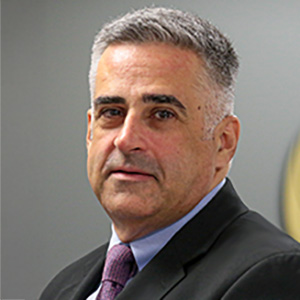Keynote
Human-Machine Symbiosis: Human Digital Twins for AI-Driven Metacognition in Education

Speaker:
Professor Roger AZEVEDO, School of Modeling Simulation and Training, University of Central Florida
Date & Time:
10:00 - 10:50 (UTC+8), 2 May 2025 (Friday)
Venue:
Rayson Huang Theatre, The University of Hong Kong (Map)
Language:
English
Sub-theme:
Human-AI Collaboration in Teaching and Learning
Facilitator:
Professor Lukas LIU, Assistant Professor, Faculty of Education, The University of Hong Kong
Video Recording:
Abstract
As artificial intelligence (AI) continues to reshape education, the integration of human-digital twins offers new avenues for modeling, simulating, and fostering metacognition. This presentation delves into the emerging concept of human-machine symbiosis in AI-driven learning environments, with a focus on how digital twins—virtual representations of learners and educators—can enhance metacognitive awareness, self-regulated learning, and adaptive instruction. By leveraging multimodal data, machine learning, and intelligent tutoring systems, human digital twins can provide real-time feedback, simulate diverse learner profiles, and personalize scaffolding to support metacognitive development. We will discuss how explainable AI, natural language processing, and computational modeling can make these systems more transparent and trustworthy for educators and learners, empowering them to be integral parts of the AI-driven learning process. The talk will also highlight key challenges, including ethical considerations, data privacy, and implementation at scale, while outlining future research directions to advance AI-driven metacognition in education. This work aims to bridge cognitive and learning sciences, AI, and education, and to create more intelligent and responsive learning systems that put educators and learners at the forefront.
About the Speaker
Dr. Azevedo is a Professor in the School of Modeling Simulation and Training at the University of Central Florida. He is also an affiliated faculty in the Departments of Computer Science and Internal Medicine at the University of Central Florida and the lead scientist for the Learning Sciences Faculty Cluster Initiative. He received his PhD in Educational Psychology from McGill University and completed his postdoctoral training in Cognitive Psychology at Carnegie Mellon University. His main research area includes examining the role of cognitive, metacognitive, affective, and motivational self-regulatory processes during learning with advanced learning technologies (e.g., intelligent tutoring systems, hypermedia, multimedia, simulations, serious games, immersive virtual learning environments, human digital twins). More specifically, his overarching research goal is to understand the complex interactions between humans and intelligent learning systems by using interdisciplinary methods to measure cognitive, metacognitive, emotional, motivational, and social processes and their impact on learning, performance, and transfer. He has published over 300 peer-reviewed papers, chapters, and refereed conference proceedings in the areas of educational, learning, cognitive, educational, and computational sciences. He was the former editor of the Metacognition and Learning journal and serves on the editorial board of several top-tiered learning and cognitive sciences journals (e.g., Applied Cognitive Psychology, International Journal of AI in Education, Educational Psychology Review, European Journal of Psychological Assessment). His research is funded by the National Science Foundation (NSF), Institute of Education Sciences (IES), National Institutes of Health (NIH), and the Social Sciences and the Humanities Research Council of Canada (SSHRC), Natural and Sciences and Engineering Council of Canada (NSERC), Canada Research Chairs (CRC), Canadian Foundation for Innovation (CFI), European Association for Research on Learning and Instruction (EARLI) and the Jacobs Foundation. He is a fellow of the American Psychological Association and the recipient of the prestigious Early Faculty Career Award from the National Science Foundation.


